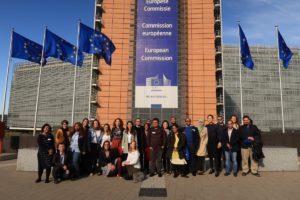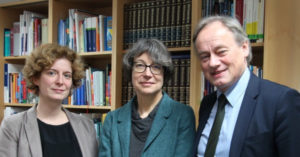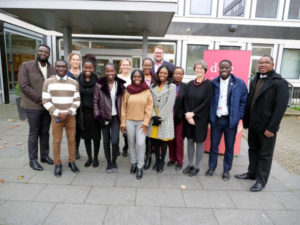On 29 November, the Global Sustainable Development Report (GSDR) was presented at the Federal Ministry for the Environment, Nature Conservation and Nuclear Safety (BMU) in Berlin. The event was organised by BMU and the Federal Environment Agency (UBA) in cooperation with SDSN Germany, adelphi, DIE, GIZ and Öko-Institut.
Jochen Flasbarth, BMU State Secretary, opened the event. Prof. Dr. Wolfgang Lutz, one of the co-authors of the GSDR, presented the key messages of the report. Dirk Messner, co-chair of SDSN Germany, took part in the panel discussion on impulses for the „Decade of Action and Delivery“ for the protection of livelihoods.
Further information can be found on the conference Website.
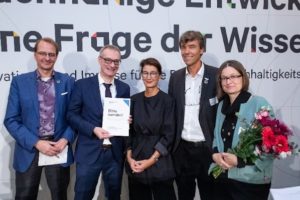
The first annual conference of the Science Platform Sustainability 2030 (WPN2030) under the title „Sustainable Development: A Question of Science“ took place on 5 and 6 December in Berlin. SDSN Germany hosted one of the expert forums dedicated to the European Semester. The new President of the EU Commission has announced that the European Semester will be realigned with the SDGs. This raises the question of how such a reorientation can be shaped and supported by German European policy. The „European Semester & SDGs“ forum brought together European and German experts from science and politics to discuss concrete starting points and possible next steps.
During the conference, the reflection paper of WPN2030 on the further development of the German Sustainability Strategy was handed over to the Federal Government.
Imme Scholz (DIE), Christian Calliess (German Advisory Council on the Environment), Patrizia Nanz (Co-Chairwoman WPN2030 & IASS) and Génica Schäfgen (Ecosia) participated in a panel discussion that focused on how to strengthen the political and social relevance of the German Sustainability Strategy.
Christa Liedtke will be representing SDSN Germany as new co-chair of WPN2030 together with Patrizia Nanz (IASS) and Daniela Jacob (DKN Future Earth). Dirk Messner who previously represented SDSN Germany as co-chair of WPN2030, announced to step back from this role as he takes up his new post as President of the Federal Environment Agency.

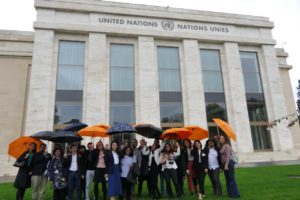 From 20 to 25 October 2019, participants of the MGG Academy 2019 went on a Study Trip to Geneva and Brussels. Their trip included a number of remarkable visits to the most important institutions in relation to global cooperation in the world.
From 20 to 25 October 2019, participants of the MGG Academy 2019 went on a Study Trip to Geneva and Brussels. Their trip included a number of remarkable visits to the most important institutions in relation to global cooperation in the world.